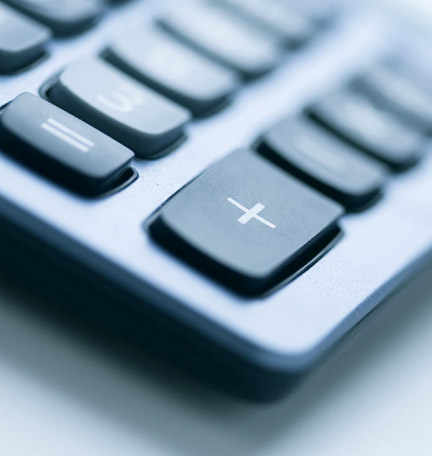5 checking account mistakes to avoid
To get the most out of your checking account, avoid these five common mistakes.
These days, a checking account is an effective tool to keep track of finances, create a budget, and pay bills. Whether you’ve just opened your first checking account or you’ve been an account holder for years, knowing how to manage a checking account is a valuable skill.
Avoiding these five common mistakes can help you get the most out of your checking account.
1. Not Checking Your Balance
Whether you prefer to reconcile your account by using a check ledger or by monitoring your account online, it’s important to keep a watchful eye on your checking account balance to make sure you don’t overdraw. Before making a purchase, withdrawing cash, or writing a check, check your balance in your bank account and make sure you have the funds available to cover the transaction.
2. Failing to Account for Debit Card Transactions
Some debit card transactions take longer to post than others. When checking your transaction activity and balance, remember to subtract any pending transactions that have not posted to your account to know how much you have available to spend or withdraw. You should also be aware of holds placed on your account as a result of a merchant’s purchase authorization request. The amount of the authorization request and the actual transaction amount might differ.
A common example of this is the addition of a tip to your restaurant bill. Also, pay-at-the-pump gas stations sometimes request a hold of $15 or more. Likewise, hotels and car rental companies can sometimes request a hold of $200 or more to cover room cost or potential incidents. These holds are often either placed on the account until the transaction clears or drops after three days, so being mindful of your transactions can keep you from overdrawing your account or having checks returned. Likewise, it’s important to make sure your purchases have processed for the correct amount.
3. Not Understanding Overdraft Protection
Overdraft protection is a service that transfers money from a linked funding account, in the event you overdraw your checking account. By linking your checking account to a savings account or to a credit card or line of credit, overdraft protection will transfer money to cover your transactions. There is usually a fee for each transfer, however, it is usually less expensive than an overdraft fee.
Many customers do not take advantage of overdraft protection because they never intend to overdraft their account. However, an overdraft can happen to anyone. Having overdraft protection in place can make an overdraft less expensive if it happens to you.
4. Closing an Account Before Checks Clear
Before closing your checking account, you should balance your checkbook or reference your online statement to ensure that all outstanding checks and debit card purchases have cleared. If checks are processed after your account is closed, they’ll be returned to the depositor and you might receive a returned item fee.
5. Post-Dating Checks
Imagine you need to pay your rent on a Wednesday but don’t get paid until Friday. Some people might post-date their rent check — writing Friday’s date on it instead of Wednesday’s — to prevent that check from being cashed before their paycheck is deposited. Take caution, however, as post-dating checks can still result in fees from insufficient funds.
If your landlord, or whomever you paid with a check, were to present your check to the bank for payment before the date you wrote on the check, it might be cashed and cleared before your paycheck is deposited in your account, and this could result in an overdraft. To be safe, don’t write a check until you have the funds in your account to cover it.
Even if you’re careful, mistakes can happen. If you do overdraw your checking account, contact your financial institution and deposit funds as soon as possible to bring your account back in balance.
Learn more about keeping your financial planning on track by creating a zero-based budget.
The terms of your financial institution’s account agreement will control how your account works and related fees.






